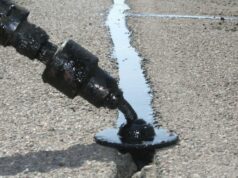
An aquarium is a window to the mysterious world hidden beneath the water’s surface, giving people a glimpse into the lives of fish and other aquatic creatures. Observing fish allows one to explore various intriguing concepts in biology and ecology.
Moreover, aquaristics also provides opportunities to learn about chemistry and physics. Read this article to find out more about the practical lessons aquariums can offer you and unveil the magic world of aquatic dwellers yourself or invite children to teach them important concepts in a more exciting way.
What Chemistry Lessons Can Be Learned Through Aquaristics?
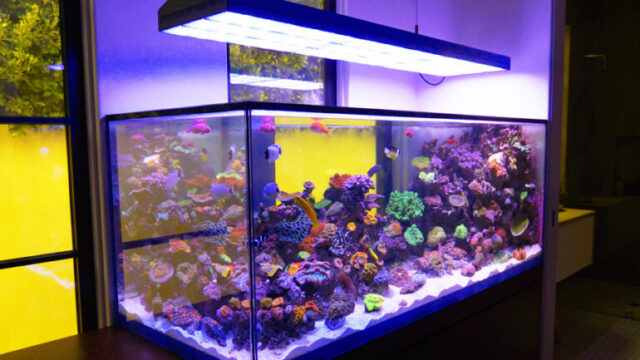
Learning chemistry through aquarium care is a very practical approach to the exploration of many scientific principles that can provide you with a hands-on educational experience.
Nitrogen Cycle
One of the most crucial chemical lessons to learn through aquarium care is the nitrogen cycle. It is a prime example of chemical transformations that involve oxidation and reduction reactions, as well as biological processes that allow bacteria to convert ammonia to nitrites and then to nitrates.
Potential of Hydrogen
Hydrogen ion concentration in water can significantly affect the health of your fish and other aquatic organisms. For this reason, aquarists must study the concept of the pH scale, which is used to measure the potential of hydrogen in solutions and learn how to measure and regulate it.
Solubility of Gases
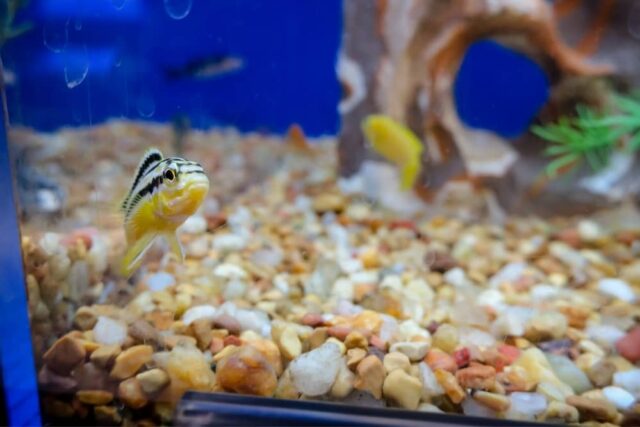
To maintain your aquarium, you will need to take care of the levels of oxygen dissolved in water. This concept in turn requires knowledge about the solubility of gases and the factors that affect it, as well as Henry’s Law. Dissolved oxygen and its accessibility to the inhabitants of your aquarium are extremely important for maintaining a healthy ecosystem.
Buffer Systems
The concept of buffer systems in a system like a water tank refers to the ability of weak acids and corresponding bases to maintain chemical balance by making the water tank more resistant to changes in pH.
Water Hardness
Another crucial concept in chemistry that aquarists should be aware of is water hardness, which depends on the concentration of minerals in water, particularly calcium and magnesium ions. Water hardness is another major factor that determines water quality and thus the well-being of aquatic organisms.
Dilution and Concentration
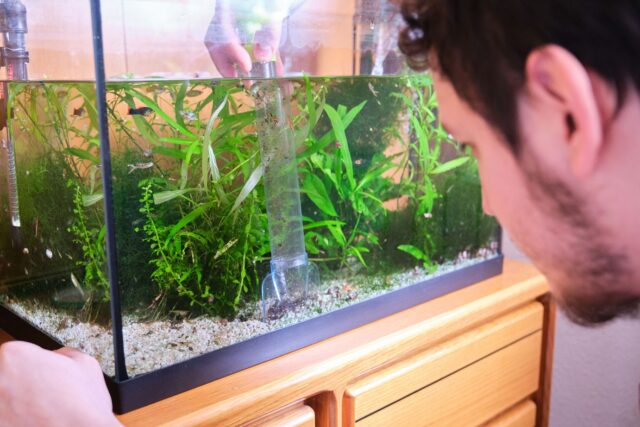
Many of the above chemical concepts require an understanding of the concentration of a solution. This concept, in turn, is related to dilution, which helps to achieve a specific concentration.
If you want to get the required concentrations of substances in your water tank, you might be interested in learning about the molarity and solubility of substances. The latter concept is connected to the precipitation of minerals and chemical compounds from the water, which affects the clarity of the water.
Nutrient Cycle
Your aquarium is a perfect source of knowledge about nutrient cycling because it showcases waste disposal and decomposition in an aquatic ecosystem governed by the rules of chemical transformations performed by microbes that convert uneaten food and other waste into other chemical compounds.
More Chemistry to Learn with Your Aquarium
Photosynthesis and carbon dioxide exchange in water, osmoregulation, membrane permeability and electrolytes, metal toxicity, and coordination chemistry are other chemical concepts you can learn if you care for your aquarium and its inhabitants.
Maintain Your Aquarium and Learn Physics
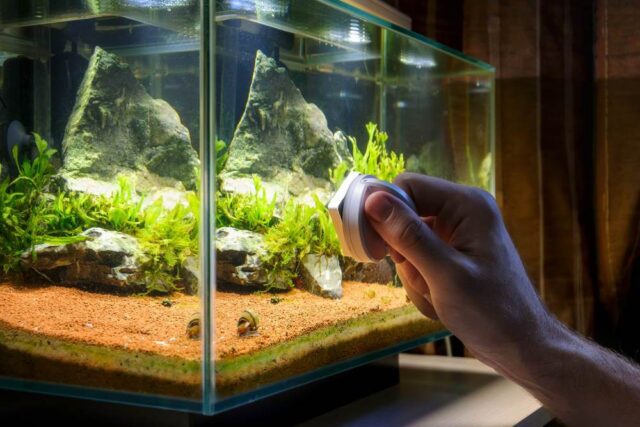
Aquatics can also help you understand many fundamental concepts of physics.
Temperature Regulation and Thermodynamics
To take care of your water tank, you will need to keep an eye on its temperature and use various devices to measure and maintain adequate temperature, for instance, heaters.
Your aquarium will introduce you to the principles of thermal insulation and heat transfer. Meanwhile, you will also be able to observe behavioral changes in your fish due to the effects of temperature on their metabolic processes.
Optics and Light
An aquarium can be one of the greatest teachers of the concepts of optics. With proper lighting, you can learn about light dispersion and the ways light travels, showing you in practice such as reflection and refraction. At the same time, you can find out how your fish respond to different levels of illumination.
Fluid Dynamics
Maintaining an aquarium requires setting up water pumps and filters. To understand how they work, you will need to study pressure, flow resistance, and fluid dynamics in general.
Electricity

If you use various equipment for your aquarium, whether it is heaters, pumps, filters, or electrical metres, you will need to learn more about the basic concepts of electricity, such as electrical voltage, circuits, power consumption, or amperage.
Acoustics
Another area of physics you can study using your aquarium is acoustics. An air stone or underwater bubbler illustrates the propagation of sound waves through a medium denser than air.
Density and Buoyancy
You can learn even more about density and buoyancy by observing the behaviour of the decorations you put in the water. Some of the objects will float while others will sink which will show you the various effects caused by different densities.
Equilibrium
The concept of equilibrium in physics, which refers to achieving stability in a system by balancing forces and factors, can be represented by a closed ecosystem of an aquarium in which numerous factors, including nutrient levels and other physical and chemical parameters, as well as fish population and plant growth, are interconnected and affect the condition of the entire aquarium.
Discover how often should you change or clean your aquarium gravel.
Conclusions – Your Aquarium as An Educational Tool
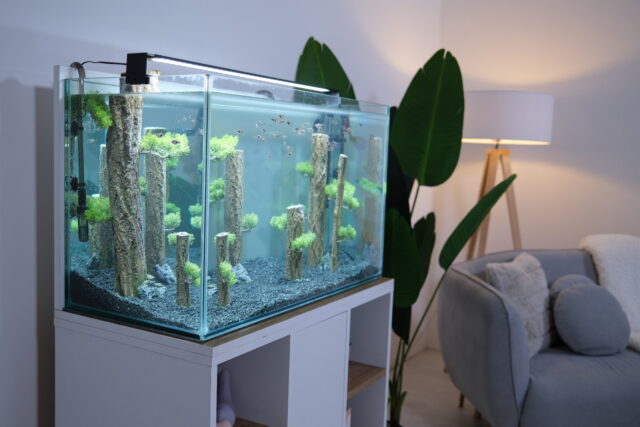
Many essential lessons in chemistry and physics can be better understood through their practical application in your aquarium. Depending on the type of water in your tank, you can study either marine science or limnology, the science of freshwater environments.
Furthermore, zoology, microbiology, ecology, botany, environmental science, water conservation, physiology, and ethology, the study of animal behaviour, will reveal their knowledge to the avid aquarists.
For more informations, visit: https://aquaforest.eu/en/articles/filtration-methods/




